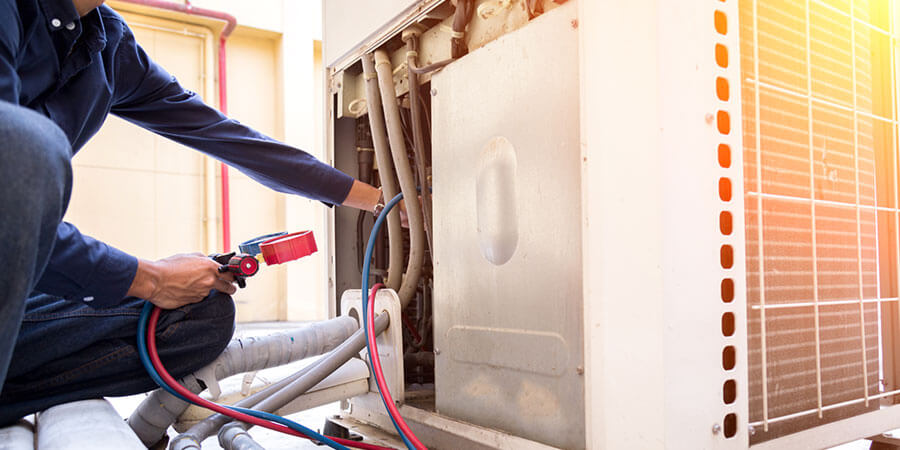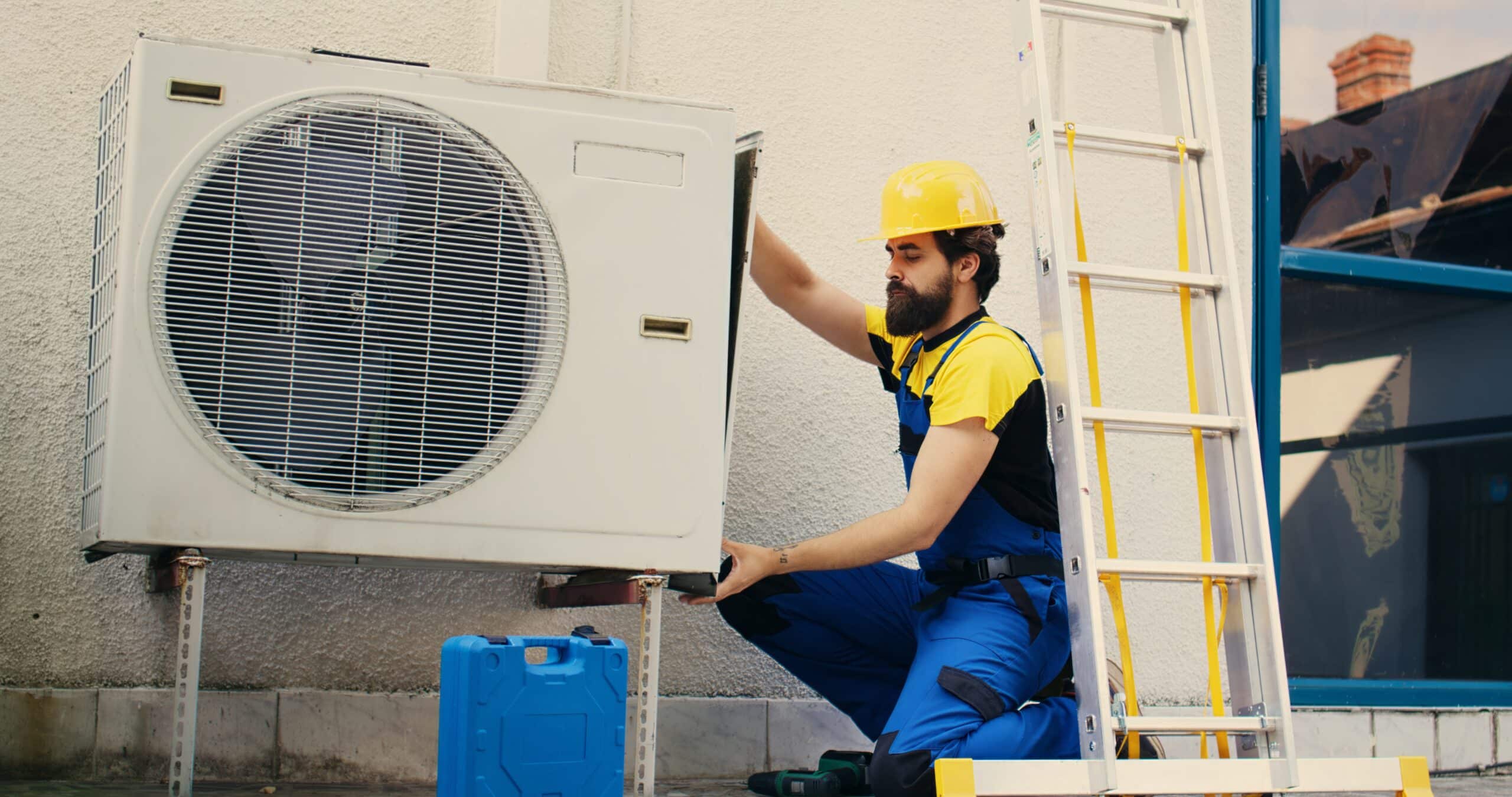Upgrade Your System Today with DMAKS HVAC Professional Help.
Upgrade Your System Today with DMAKS HVAC Professional Help.
Blog Article
Energy-Efficient HVAC Equipments to Reduce Energy Bills
As power expenses remain to rise, the importance of energy-efficient cooling and heating systems becomes progressively apparent. These systems not only assure considerable cost savings on energy bills however likewise contribute to an extra lasting future by minimizing energy usage. With numerous choices readily available, consisting of geothermal heat pumps and ductless mini-splits, homeowner deal with a plethora of choices that can improve convenience and air quality. Recognizing the vital functions and maintenance demands is crucial to optimizing these advantages. What elements should be prioritized when choosing the best system for your requirements?
Advantages of Energy-Efficient HVAC Equipments
Energy-efficient HVAC systems supply many benefits that expand past mere cost financial savings. One significant advantage is the lowered environmental effect. By eating less energy, these systems add to reduce greenhouse gas discharges, helping to deal with climate adjustment and advertise sustainability. This lines up with enhancing social needs for eco-friendly practices in household and industrial settings.
Additionally, energy-efficient HVAC systems often provide boosted convenience levels. A number of these systems include advanced technology that enables better temperature control and boosted air top quality (DMAKS HVAC). This leads to a much healthier indoor setting, which is particularly vital for individuals with allergies or respiratory concerns
Moreover, buying energy-efficient HVAC systems can enhance property worth. As more customers focus on power effectiveness, homes and buildings equipped with these systems might bring in higher bids in the actual estate market.
Kinds Of Energy-Efficient HVAC Options
Exactly how can homeowners and companies pick the most ideal energy-efficient heating and cooling options for their needs? The marketplace supplies a range of energy-efficient heating and cooling systems, each created to enhance convenience while minimizing energy intake.
One option is the variable refrigerant flow (VRF) system, which successfully controls the temperature level in multiple areas within a building. This system adjusts its cooling agent flow to match the wanted temperature, resulting in considerable energy financial savings.
Another preferred choice is geothermal heatpump, which make use of the planet's steady temperature to warm and awesome spaces. By transferring warmth to and from the ground, these systems demonstrate remarkable effectiveness, especially in moderate climates.
In addition, ductless mini-split systems give an energy-efficient choice for homes doing not have ductwork. These systems permit zone-specific cooling and heating, decreasing power waste in empty areas.
Finally, high-efficiency heating systems and air conditioning system, with innovative SEER and AFUE rankings, provide trusted climate control while eating much less power than conventional versions. By evaluating these options, homeowners and organizations can pick a cooling and heating system tailored to their specific demands and power efficiency goals.
Key Attributes to Consider

Next, investigate the sort of compressor utilized in the system. DMAKS HVAC. Variable-speed compressors can adjust their result to match the heating or cooling need, leading to boosted convenience and power financial savings contrasted to single-speed versions. Furthermore, look for systems outfitted with smart thermostats that use programmable setups and remote access, enabling better control over energy intake
An additional crucial function is the system's air filtering capacity. High-efficiency filters can improve indoor air top quality and minimize energy intake by making certain the system runs efficiently. In addition, take into consideration the kind of cooling agent used; modern-day systems usually employ environment-friendly refrigerants that have a reduced environmental get more effect.
Last but not least, guarantee that the system works with zoning modern technology, which permits for tailored temperature control in various locations of your home, enhancing comfort while lessening power usage.
Tips for Choosing the Right System


Next, consider this article energy effectiveness ratings, particularly the Seasonal Power Performance Proportion (SEER) for cooling systems and the Yearly Fuel Use Effectiveness (AFUE) for heating unit. Higher rankings suggest greater effectiveness, which can bring about substantial financial savings on utility bills over time.
In addition, examine the kind of HVAC system that best suits your way of living and budget plan. Alternatives include central air conditioning, ductless mini-splits, and heat pumps, each with its very own collection of advantages and drawbacks.
Do not neglect the significance of correct setup and sizing; an incorrectly sized system can cause inefficiencies and increased wear. Last but not least, seek advice from a specialist a/c specialist to acquire skilled recommendations customized to your home's unique demands. This extensive strategy will guarantee that you select an energy-efficient a/c system that fulfills your needs and budget plan properly.
Upkeep for Ideal Efficiency
Once the ideal cooling and heating system is in location, recurring maintenance becomes essential to making sure optimal efficiency and long life. A well-maintained system operates much more successfully, leading to lower energy consumption and decreased utility bills. Regular examinations and tune-ups need to be arranged at the very least two times a year-- when before the air conditioning season and when before the heating season.

Home owners need to additionally be vigilant concerning monitoring their HVAC system's efficiency. Uncommon noises, rising and fall temperatures, or boosted energy expenses can show underlying issues that require instant interest. By resolving these issues without delay, home owners can prevent expensive fixings and extend the life expectancy click for info of their systems.
Investing in an upkeep strategy with a certified specialist not just boosts effectiveness yet also supplies assurance, knowing that the system is operating at its finest. DMAKS HVAC. Routine upkeep is consequently essential for maintaining power effectiveness and reducing overall operational expenses
Final Thought
In verdict, energy-efficient a/c systems present a practical service for minimizing energy expenses while enhancing convenience and air top quality. By including innovative modern technologies and alternatives such as geothermal heat pumps and ductless mini-splits, homeowner can accomplish considerable energy cost savings and contribute to ecological sustainability. Careful consideration of system attributes and continuous upkeep better guarantees optimal efficiency, making energy-efficient systems a sensible financial investment for both financial and ecological advantages.
Report this page